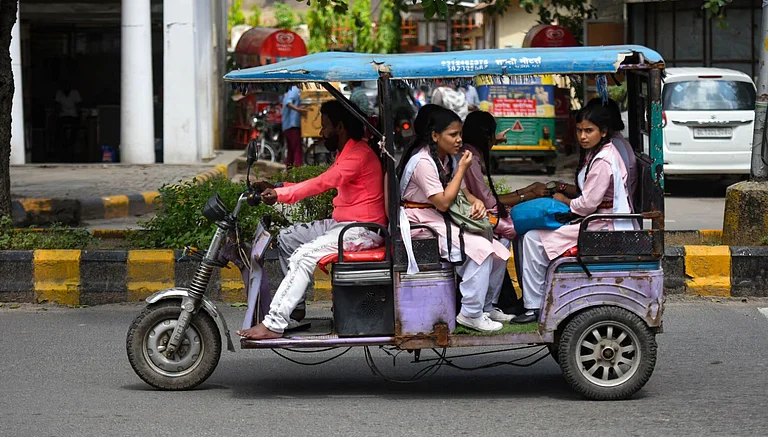Certainly not to Lok Jumbish's credit alone. Yet, the state government's evaluation of its performance in '97-98 found only 17 per cent children in Lok Jumbish areas out of school as against 50 per cent in other parts. Moreover, in a state whose districts have some of the country's lowest female literacy rates, Lok Jumbish achieved an 11 percentage point improvement in girls' enrolment. But the project's most significant achievement is in creating a demand for education.
Innovative decentralistion has empowered local bodies to open and upgrade primary schools and create vacancies for teachers. As a moulvi at Kaman block's predominantly Muslim village Ahelwadi says: 'Before Jumbish came here, children weren't sent to government schools. Then we were invited to plan increase in attendance. We said Urdu and religious instruction were a must. Now, Jumbish pays moulvis like me to teach in the schools. Classrooms are full.'
So, is India expanding on and emulating such a project? Far from it. The war against illiteracy be damned, there's squabbling over a literacy programme that the Human Development in South Asia, 1998 report described as 'moving towards ideal partnerships in education'. The battle-cry rang loud last December, when soon after taking office, the Congress government said it was winding up Lok Jumbish. Then, processes of disruption took over.
Projects such as Lok Jumbish were shifted from the education ministry to the ministry of panchayati raj and rural development (pr&rd): indicating perhaps that these were now more matters of administration than education. By February, the World Bank was asked to replace Lok Jumbish with the District Primary Education Programme (dpep) that it was already funding in the state's other blocks. Then, the new minister unleashed a slew of allegations about Lok Jumbish's mismanaged funds and political liaisons with the erstwhile bjp government. Former education secretary and Lok Jumbish chairperson Anil Bordia, who'd pioneered the project, was denied extension of service and replaced with a bureaucrat.
But Lok Jumbish, which means People's Movement, lived up to its name. By May, protests galore and local media support saw chief minister Ashok Gehlot back-tracking on his decision and announcing Lok Jumbish on again.
'But just in name, not in spirit,' says Bordia. 'The project's achievement was its autonomy. Bureaucratisation will now make it a government department.' In fact, all the state's primary education programmes (Jumbish, dpep, Shiksha Karmis) have been clubbed together under a bureaucrat. 'Rules demand 'an eminent educationist or an educational administrator' run the project. But a development commissioner is in charge now. A civil servant can't be 'autonomous'. They'll make it a subordinate office of the government. Transfers of personnel have already begun. '
Harried by such uncertainties, about 12,000 villagers and field workers staged a demonstration in Jaipur earlier in July. Under the banner of Lok Sahbhagi Samiti, they met Gehlot and asked that the proposed amendments be shared with them.
'It's about state control over successful people's movements. We, as ngos, were regular partners in decision-making. Now we are to be no more than contractors'paid for assigned inputs,' says Dr Sharda Jain of Sandhan, a research and training agency for Jumbish. Adds the head of the School and Non-Formal Education Department at the National Institute for Educational Planning and Administration, Dr R. Govinda: 'The bureaucracy's stranglehold coupled with the politician's desire for a share in the pie kills most initiatives in education.'
Counters C.P. Joshi, the state pr&rd minister: 'They're making a fuss because too much money was being distributed whimsically! What's wrong with a bureaucrat heading Lok Jumbish? Even Bordia was a bureaucrat. There's nothing wrong with the government exercising more control; people voted us into power. They just got along better with the bjp.'
Perhaps 'they' were as harassed by the bjp. Contrarily perhaps, 'they' had become project bureaucracy, more comfortable with one political party than another. After all, in these times of huge international fundings it's all about power and possibilities. But Lok Jumbish did bring children into the classrooms. Why mess with that?


























